

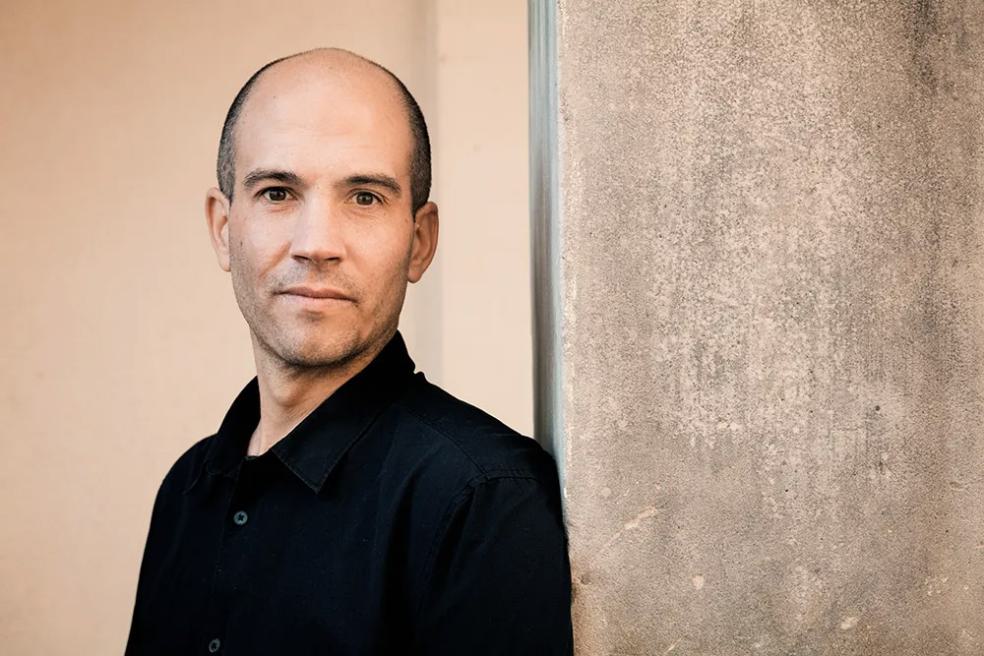
Guillaume Vairet beschäftigt sich intensiv mit Kammermusik in französischen und deutschen Ensembles. Seit 2014 ist er Mitglied von unitedberlin und betreut dort auch alle Fragen um das jeweils benötigte Instrumentarium – unschätzbar, diese Tätigkeit!
1989 in der Hauptstadt gegründet, wurde das ensemble unitedberlin zum Sinnbild der wiedergewonnenen Verbindung von Musik und Musikern im lange geteilten Berlin.
ensemble unitedberlin
Einfallsreich, mutig voranstrebend und immer am Puls der Zeit: Das ensemble unitedberlin ist eine unverzichtbare Größe der internationalen Szene für Neue Musik. Seit 1989 bringt es zeitgenössische Werke zu Gehör, überschreitet faktisch und im übertragenen Sinne Grenzen, stellt sich schwierigen gesellschaftlichen Themen, mahnt politische Missstände an und erinnert an einschneidende geschichtliche Ereignisse.
Als selbsternannte „Galeristen der Avantgarde“ sind die Ensemblemitglieder stets auf der Suche nach abwechslungsreichen Klängen, die berühren, Anstoß erregen oder zum Nachdenken animieren. Um möglichst viele Menschen für Neue Musik zu begeistern und die Inspiration weite Kreise ziehen zu lassen, gehen sie ungewohnte Wege und binden immer wieder verschiedene andere Kunstformen in ihre Konzerte ein: Tanz, Literatur, O-Töne, Zeitzeugenberichte, szenische Darstellung, Elektronik, audiovisuelle Medien und selbst Kulinarisches. Neben reinen Musikerlebnissen erwarten das Publikum somit oft multimediale Feststunden für die Sinne. Auch mit Musikformen jenseits der zeitgenössischen Klassik beschäftigt sich unitedberlin; beispielhaft dafür sei ein Ausflug in die Rock-Welt Frank Zappas genannt.
Zumeist stehen die Konzertprogramme des Ensembles für sich, es werden aber auch Konzertreihen wie der saisonübergreifende Schwerpunkt „Der Traum vom Widerstand“ konzipiert, mit dem in den vergangenen Jahren die vielgestaltige Auflehnung gegen Unrechtsregime in der Geschichte thematisiert wurde.
unitedberlin verfügt über einen bemerkenswerten Stamm an Musiker:innen und kann so einen Großteil der Aufführungen seines breiten Repertoires mit eigenen Kräften bestreiten. Mit der Vergabe von Auftragskompositionen an bekannte Komponist:innen oder junge Talente, gerne auch mit Berlin-Bezug, trägt das Ensemble zur Förderung und zur Formung der zeitgenössischen Musik bei. Für seine Aufführungen arbeitet es mit hochkarätigen Dirigent:innen zusammen, die wie die Ensemblemitglieder für die Vermittlung Neuer Musik brennen und sich den Werken in möglichst komplexer Weise nähern, sodass für die beteiligten Künstler:innen und das Publikum gleichermaßen eine gewinnbringende Atmosphäre geschaffen werden kann. Eine besondere Stellung nimmt dabei seit 1993 Vladimir Jurowski ein, der in seiner heutigen Position als Artistic Advisor viele Programme mitgestaltet und immer wieder auch selbst Konzerte des Ensembles dirigiert.
Eine weitere hochgeschätzte Zusammenarbeit pflegt das ensemble unitedberlin mit dem Konzerthaus Berlin, wo es vier Konzerte im Jahr spielt und sich somit zu den festen Größen jeder Spielzeit der traditionsreichen Institution zählen darf.
Sowohl inhaltlich als auch auf Tourneen setzt sich das Ensemble mit anderen Ländern und deren Kulturen auseinander. Gastspiele gaben die Musiker:innen u. a. bereits in Frankreich, Spanien, Italien, Polen, Rumänien, Russland, Korea, den USA und Südamerika.
Gegründet wurde das ensemble unitedberlin im Zuge der deutschen Wiedervereinigung als Sinnbild der wiedergewonnenen Verbindung von Musik und Musiker:innen in der lange geteilten Stadt. Seine Geschichte trägt es nicht nur im Namen weiter, sondern es widmet sich auch immer wieder thematisch der deutschen Teilung sowie dem Schaffen von Komponist:innen auf beiden Seiten des Eisernen Vorhangs.
Die Diskografie von unitedberlin hat sich über die Jahre hinweg stetig gefüllt, u. a. mit Werken von Luigi Nono über Kompositionen des Bautzeners Jan Cyž bis hin zu „X-MAS CONTEMPORARY“, einer Sammlung von Weihnachtsliedern aus dem 21. Jahrhundert mit dem Bariton Dietrich Henschel unter der Leitung von Vladimir Jurowski.
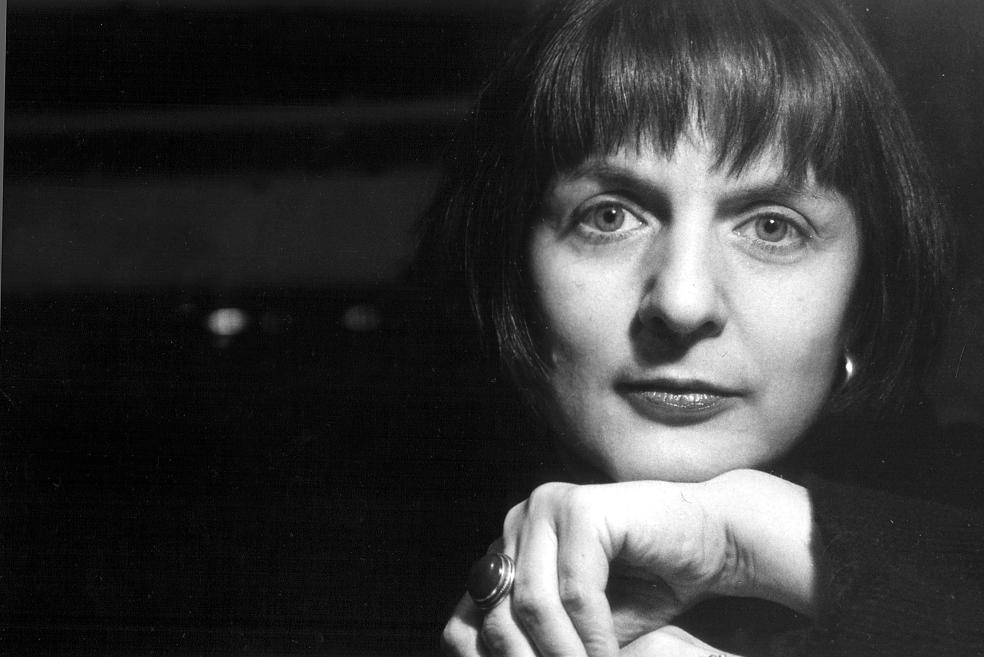
Nomeda Valančiūtė (b. 1961) studied composition with Prof. Julius Juzeliūnas at the Lithuanian Academy of Music in 1979-84. The composer is a winner of three S. Šimkus prizes for choral works (1991, 1992, 1994), a prize-winner of the competition of composers arranged by the Lithuanian Music Fund (1996, 1998, 2001). In 2001 she received Brandenburg State scholarship for creative work at the Künstlerhaus Schloss Wiepersdorf (Germany), in 2002 - the scholarship of Stiftung Kulturfonds for creative work at the Künstlerhaus Lukas (Ahrenshoop, Germany), in 2003 - Schleswig-Holstein State scholarship for creative work at the Künstlerhaus Eckernförde (Germany). Her works were performed at the festival "A*Devantgarde" in Munich (1993), the 9th International Music Festival in Heidelberg (1994), the International Composers Forum in Cottbus (1994), the ISCM World Music Days in Stockholm (1994), Cottbuser Musikherbst (2000, 2001), MaerzMusik in Berlin (2003), and other festivals in Germany, Italy, Switzerland, Denmark, Spain, Japan, Poland, The Netherlands, Finland, Russia, Latvia, and Lithuania.
The strictly calculated music of Nomeda Valančiūtė is, however, not technological by nature - her compositions are all based on a not easily defined intuitive impulse, which is later matured through methodical work with sound material, and then given a precisely polished form. Valanciute's minimalist idiom is connected as much with ancient isorhythmic techniques (rotating patterns of melodies and rhythms which differ in length), as it is with the principles of 20th-century repetitive music. A closer look at the composer's works and their conceptual stimuli reveals interesting internal opposites: frank emotion - and its 'suppression' via uncompromisingly austere structures; a crystal clarity throughout - and the conscious avoidance of 'beauty' (utilization of sharply 'upsetting' disonance, and frequent application of the 'out of tune' sound of a prepared piano, etc); the stance of a 'pure music' adept - and the multidimensional picturesqueness of this music, its oddly 'theatrical' manner of speaking, and a certain 'bittersweet' glamour which applies only to this composer.

Über Valls’ Jugend ist wenig bekannt. Er wurde wahrscheinlich in Barcelona geboren, über sein Geburtsjahr besteht heute Uneinigkeit. Im Jahr 1688 findet sein Name an der Kathedrale in Girona Erwähnung, 1696 in Santa Maria del Mar in Barcelona als „maestro de capilla“, später in gleicher Funktion an der Kathedrale von Barcelona, wo er bis zum Ruhestand bleibt.
Valls hat ein relativ umfangreiches Werk hinterlassen, das aber heute, wie die spanische Barockmusik im Allgemeinen, relativ unbekannt ist. Charakteristisch für seine Persönlichkeit muss gewesen sein, dass er sich stark an modernen musikalischen Strömungen seiner Zeit orientierte und selbst in seinen Kompositionen gelegentlich Konventionen brach. Bekannt ist seine Schrift Mapa armonico, in der er kompositorische Regeln und Konventionen seiner Zeit kritisch behandelt.
Sein Schaffen ist überwiegend der Kirchenmusik gewidmet, unter seinen neun Messen ist die Missa Scala Aretina die bekannteste. Weiterhin komponierte er Motetten, Oratorien, Litaneien, Magnificats und Instrumentalmusik. Sein Werk ist bis heute nur teilweise ediert, viele der Autographen befinden sich noch in spanischen Archiven.

Doug Van Nort ist Künstler, Komponist, Improvisator und Wissenschaftler. Seine kreative und wissenschaftliche Arbeit befindet sich an der Schnittstelle von elektroakustischer, experimenteller und Computermusik, improvisierter und interaktiver Performance sowie der Klangkünste im Allgemeinen. Von professioneller Musik bis hin zu öffentlichen Installationen und Workshop-Kontexten schafft er Kompositionen und Rahmenwerke für Improvisation, die Maschinenagenten, immersive Umgebungen, interaktive Systeme und Erfahrungen der Telepräsenz als Randbedingungen integrieren, um die vielfältigen Wege zu erforschen, wie Performer*innen emergente, kollektive Bedeutungen außerhalb der gesprochenen Sprache verhandeln.
Dazu gehört ein Interesse an Intersubjektivität, verteilter Handlungsfähigkeit und sensorischer Immersion in Aufführungskontexten, die Improvisation beinhalten, durch affektive und viszerale Erfahrungen insbesondere der klanglichen und haptischen Sinne vermittelt werden und die von der komplexen und verkörperten Natur des Zuhörens geleitet werden. Van Nort präsentiert dieses Werk regelmäßig international, mit jüngsten Projekten, die telematische Musikkompositionen mit virtueller Akustik, ein solarbetriebenes und sich entwickelndes Umwelt-Klangkunstwerk für einen abgelegenen Teich (Fieldwork), das Doug Van Nort Electro-Acoustic Orchestra, autonome Maschinenkompositions-/Improvisationssysteme, interaktive Musikkomposition für groß angelegte Tanzstücke (National Ballet School, EMPAC, York Dance Ensemble) und Klanglandschaftskompositionen für 2.500 Jahre alte Chinesen umfassen. Glocken (Smithsonians Freer-Sackler Gallery) und performative Sonifizierung von Datenströmen (NASAs Kepler-Mission). Diese Arbeit basiert auf seinem Hintergrund in Mathematik, Medienkunst, Deep Listening Practice, Musikkomposition und -Performance und greift auf unterschiedliche Bereiche zurück, die von Wahrnehmungs- und Kognitionswissenschaft, der Sprache der elektroakustischen Musik, Systemtheorie, Klangstudien, KI/maschinellem Lernen, Signalverarbeitung bis hin zu verschiedenen Ritualformen reichen.
Diese breiteren Fragen werden durch Van Norts zwanzigjährige Praxis als elektroakustischer Komponist/Improvisator getrieben, in der er die Grenzen von Rauschen und Klang, dicke Materialschichten, Mikroschall, Textur, Drone, breite spektrale und dynamische Bereiche sowie das Entstehen neuer Inhalte erforscht, die aus Interaktionen mit eigenwilligen und immersiven akustischen Räumen sowie psychoakustischen Phänomenen entstehen. Van Nort spielt auf selbstgebauten elektronischen Instrumenten, die einen plattenspielerähnlichen, skulpturalen Ansatz zur Klanggestaltung mit Händen und Stimme verfolgen. Oft fängt er Klänge live bei Aufführungen ein, während seine aufgenommenen Quellmaterialien Instrumente und natürliche Umgebungen umfassen, einschließlich aller Klänge, die durch aufmerksames Zuhören der Welt entdeckt werden.
Van Nort tritt häufig sowohl solo als auch mit einer Vielzahl von Künstlern aus verschiedenen Musikstilen und künstlerischen Medien auf. Er war Gründungsmitglied von Triple Point zusammen mit Pauline Oliveros und Jonas Braasch und war während seines Aufenthalts in New York Teil eines Duos mit dem Underground-Noise-/Kassetten-Szene-Guru If, Bwana und aktives Mitglied der Composers Inside Electronics, die vom verstorbenen David Tudor gegründet wurden. In den letzten Jahren hat er mit Dutzenden von Künstlern aufgetreten und aufgenommen, darunter Francisco López, Pauline Oliveros, Stuart Dempster, Malcolm Goldstein, Al Margolis (If, Bwana), Chris Chafe, Jonas Braasch, Kathy Kennedy, Ben Miller, Alessandra Eramo, David Arner, Anne Bourne, Eric Leonardson, Judy Dunaway, Katherine Liberovskaya, Carver Audain, Paul Hession, Jefferson Pitcher, Francois Houle, Jonathan Chen, Sarah Weaver. Gerry Hemingway, Min Xiao-Fen, Ray Anderson, Miya Masaoka, Franz Hackl, Mark Helias und Dave Taylor sowie viele andere. Er hat seine Werke an verschiedenen Orten aufgeführt und präsentiert, darunter das SAT und Casa del Popolo in Montreal, auf WNUR in Chicago, Casa da Musica in Porto, Betong in Oslo, Cafe OTO in London, Skolska28 in Prag, Liebig12 und QuietCue in Berlin, das Smithsonian in Washington D.C., das Reina Sofia Museum in Madrid, The Red Room in Baltimore, Studio Soto in Boston, das Guelph Jazz Festival, das XAvant Festival in Toronto, Roulette, Harvestworks, das Flea Theatre, Socrates Sculpture Park, das New Museum, das Miller Theatre, Issue Project Room und The Stone in NYC, im Town Hall (NYC) auf einem 'Intonarumori' im Rahmen der Performa-Futuristen-Biennale im EMPAC in Troy, NY, auf der International Conference on Auditory Display (ICAD), New Interfaces for Musical Expression (NIME), im Rahmen des legendären, von Phil Niblock kuratierten 'Festival ohne schicke Namen' bei Experimental Intermedia, beim NYC elektroakustischen Musikfestival und vielen anderen Festivals und Veranstaltungen in den USA und Europa.
Seine kreative/Forschungsarbeit wurde von unterschiedlichen Quellen unterstützt und anerkannt, darunter die NY Foundation for the Arts (NYFA), der NY State Council for the Arts (NYSCA), die National Science Foundation (NSF), die International Computer Music Association (ICMA), das Banting Fellows-Programm, die Canadian Foundation for Innovation (CFI), der Ontario Research Fund (ORF), der Social Sciences and Humanities Research Council (SSHRC) und das Canada Research Chairs (CRC) Programm.
Aufnahmen von Van Norts Musik sind unter anderem bei Deep Listening, Pogus, Zeromoon, MIT Press und Attenuation Circuit zu finden. Ende 2014 wurde ein Triple Point 3-CD-Set, veröffentlicht bei Pogus Productions, von Van Nort produziert (ausgewählt, bearbeitet, gemastert, Grafikdesign). Es wurde gelobt wie: "Elektroakustische Improvisation hat das Potenzial, eine Musik von timbraler Komplexität zu sein, von schnellen Klangwechseln innerhalb einer vielschichtigen Umgebung ... Triple Point erfüllt dieses Potenzial, wie man es von einer so feinen Gruppe von Improvisatoren erwarten würde... Jeder hat eine unverwechselbare Stimme, aber der Sound der Gruppe ist ein wirklich kollektives, emergentes Objekt für sich." (Daniel Barbiero, Avant Music News). In wissenschaftlichem Stil erschienen Van Norts Texte in Organized Sound, dem Computer Music Journal, Digital Creativity, dem Leonardo Music Journal, Kybernetes und dem Journal of the Acoustical Society of America. Er hat außerdem in verschiedenen internationalen Konferenzbänden veröffentlicht und wurde mit dem Best Paper Award auf der International Computer Music Conference (ICMC) 2010 ausgezeichnet. Als Lehrerin hat Van Nort Workshops, Seminare und Kurse geleitet, die darauf abzielen, das Hören und die Kreativität durch eine Mischung aus Körperarbeit, Hör- und Klangübungen sowie die Nutzung analoger/digitaler Elektronik als gemeinsames Medium für diese kollektiven Erfahrungen zu fördern. Diese Veranstaltungen nutzen Van Norts Erfahrung mit Deep Listening (Zertifikatsinhaber) und sein Leben als Praktizierender elektroakustischer Komposition/Improvisation sowie klangfokussierter Kunst/Forschung. Van Nort integriert diese Methoden auch in seine universitäre Lehre, die kürzlich von der School of the Arts, Media Performance and Design der York University mit ihrem Teaching Award ausgezeichnet wurde, der jährlich an ein Fakultätsmitglied für hervorragende Lehrleistungen vergeben wird.
Von 2008 bis 2013 war Van Nort wissenschaftlicher Mitarbeiter und Dozent für Musik und Medien am Rensselaer Polytechnic Institute, wo er als Kernmitglied eines von der NSF geförderten Projekts zu Telepräsenz und maschineller Improvisation forschte und gleichzeitig Kurse in elektronischer Kunst und Architektur zu telematischer Musik, Improvisation, immersiven Umgebungen, Hören und Klang unterrichtete. Van Nort zog anschließend nach Montreal für ein renommiertes Banting-Stipendium an der Hexagram / Concordia University, wo er aktiv mit Medienkünstlern, Performern und Wissenschaftlern als Partner des Topological Media Lab zusammenarbeitete. Mehrere Jahre lang war er einer von drei Herausgebern, die das Peer-Review und die Inhaltsauswahl für das Computer Music Journal (MIT Press) überwachten. Van Nort ist derzeit Canada Research Chair in Digital Performance und außerordentlicher Professor an der York University, wobei er zwischen den Fachbereichen Computational Arts und Musik besetzt ist. Er ist Gründer und Direktor des DisPerSion (DIStributed PERformance and Sensorial immerSION) Lab, das sich der Erforschung von verteilter Handlungsfähigkeit, Improvisation und technologisch vermittelter Performance widmet.

Das 2012 gegründete Ensemble für Neue Musik Tallinn (ENMT) ist international das aktivste estnische Ensemble für zeitgenössische Musik und eine bedeutende Plattform, um neue Musik zu erleben und ihre Möglichkeiten zu erweitern. Das Ensemble arbeitet eng mit vielen Festivals in ganz Europa zusammen: Mixtur Festival in Barcelona, Warschauer Herbst, Musikprotokoll in Graz, Ostrauer Musiktage, Inner Sound New Arts Festival in Bukarest, IGNM Weltmusiktage, Estnisch-baltische Musiktage, Resonanta Association in Paris, Unerhörte Musik in Berlin, Fylkingen in Stockholm. Neben Kompositionsaufträge an estnischen und ausländischen Komponisten, bringt das ENMT viele Werke von wichtigen Komponisten zeitgenössischer Musik zur Aufführung. Seit 2017 organisiert ENMT das Festival Sound Plasma, das der Alternativen Intonationen gewidmet ist. Künstlerischer Leiter des Ensembles ist der Komponist und Dirigent Arash Yazdani.
Bei den „intersonanzen“ 2023 spielt das Ensemble mit Karolina Ledo fl, Helena Tuuling kl, Toomas Vana trb, Toomas Hendrik Ellervee vl, Mairit Mitt-Bronikowska vla
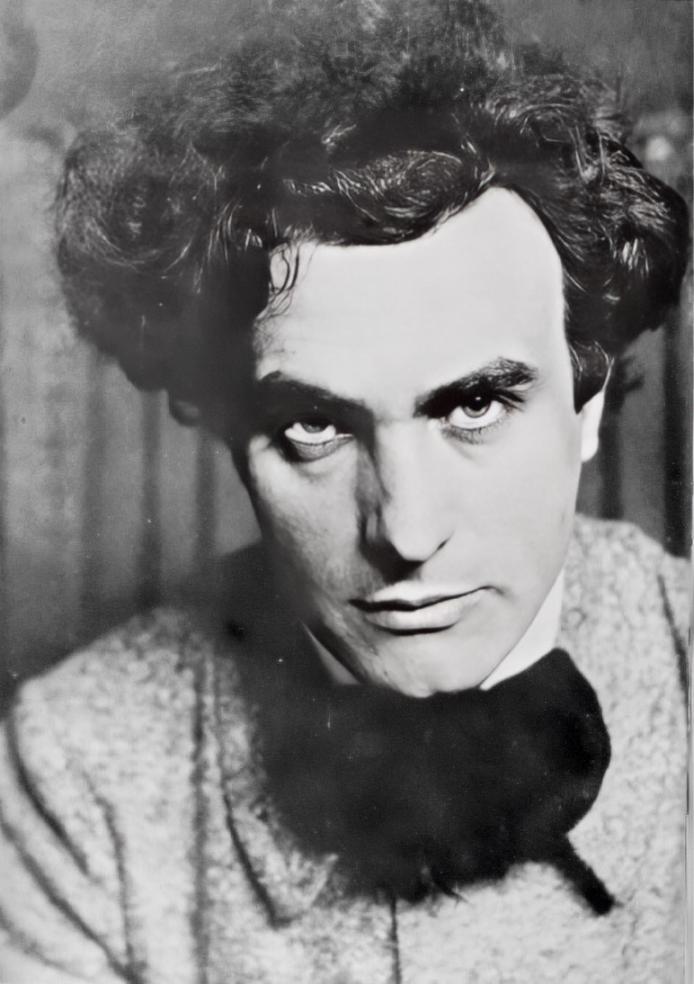
Edgar Varèse (geboren als Edgard Victor Achille Charles Varèse;[1] * 22. Dezember 1883 in Paris; † 6. November 1965 in New York) war ein französischer Komponist und Dirigent, der 1915 in die Vereinigten Staaten emigrierte
Edgar Varèse war das älteste von sieben Kindern des Italieners Henri Varèse und seiner französischen Frau Blanche-Marie Cortot. Er wuchs in Paris und bei seinen Großeltern mütterlicherseits in Le Villars im Burgund auf; eine prägende Rolle in seiner Kindheit spielte der Großvater Claude Cortot. 1892 zogen seine Eltern mit ihm nach Turin. Dort unternahm er mit elf Jahren einen ersten Kompositionsversuch: Martin Pas, eine Oper nach Jules Verne für Knabenstimme und Mandoline. Der Vater war Ingenieur, wünschte für seinen Sohn den gleichen beruflichen Weg und legte Wert auf eine mathematisch-naturwissenschaftliche Ausbildung. Den musikalischen Interessen des Sohnes stand er ablehnend gegenüber; dieser nahm heimlich Unterricht: Im Jahr 1900 wurde er Schüler am Turiner Konservatorium. Er wirkte als Schlagzeuger im Opernorchester mit und machte erste Erfahrungen als Dirigent. Im selben Jahr starb seine Mutter, das gespannte Verhältnis zu seinem Vater, der ein zweites Mal heiratete, verschärfte sich.
1903 brach Varèse endgültig mit seinem Vater und ging nach Paris, wo er 1904 ein Musikstudium an der Pariser Schola Cantorum aufnahm. Seine Lehrer waren Albert Roussel (Kontrapunkt), Vincent d’Indy (Komposition, Dirigieren) und Charles Bordes (Musik des Mittelalters und der Renaissance). 1905 wechselte er an das Pariser Konservatorium und studierte bei Charles-Marie Widor (Komposition). Er gründete seinen ersten Chor, stand in Verbindung zur Künstlergruppe La Mansarde, die sich für das wagnersche Gesamtkunstwerk begeisterte, und komponierte erste Werke für Orchester. 1907 beendete er sein Studium bei Widor und heiratete die Schauspielerin Suzanne Bing. Zudem lernte er Claude Debussy persönlich kennen, dessen Musik ihn schon seit seiner Zeit in Turin stark beeindruckt hatte.
Am Ende des Jahres zog Varèse mit seiner Frau nach Berlin. Vermutlich hatte er Ferruccio Busonis Schrift Entwurf einer neuen Ästhetik der Tonkunst gelesen, jedenfalls suchte er zu diesem engen Kontakt und wurde sein Schüler. Er korrespondierte mit Hugo von Hofmannsthal, nach dessen Schauspiel Ödipus und die Sphinx er eine Oper komponierte. Er gründete auch in Berlin einen Chor, machte die Bekanntschaft von Maurice Ravel, Richard Strauss, Romain Rolland und – anlässlich eines Besuches bei von Hofmannsthal in Wien – Gustav Mahler. Rolland wurde ein Förderer von Varèse. Das Orchesterwerk Bourgogne wurde durch die Fürsprache von Richard Strauss am 15. Dezember 1910 als erstes seiner Werke öffentlich in Berlin vom Blüthner-Orchester uraufgeführt. Schon vorher im Oktober wurde seine Tochter Claude geboren. Er hörte 1912 die Uraufführung von Pierrot Lunaire von Arnold Schönberg, einem Schlüsselwerk der Musik des 20. Jahrhunderts.
Edgard Varèse (1910)
1913 ließ sich Varèse scheiden. Während eines längeren Aufenthaltes in Paris vernichtete ein Brand in Berlin mit seinen zurückgelassenen Manuskripten fast alle seine bis dahin komponierten Werke. In Paris war er Zeuge der skandalträchtigen Uraufführung eines weiteren Schlüsselwerks: Igor Strawinskis Ballett Le sacre du printemps. Einflüsse und Zitate von Strawinskis Sacre und Petruschka zeigten sich später im Werk Varèses.[2] Er arbeitete außerdem an einem Bühnenprojekt von Jean Cocteau mit.

Entstand 1993 an der Musikschule Berlin-Kreuzberg, zunächst stand das Experimentieren mit neuen Spieltechniken und das Improvisieren als Grundlage der Arbeit. Es spielte in seiner Entstehungszeit junge Komponisten wie Sebastian Stier, Steffen Schellhase, Janis Antonopulis und Peter Köszeghy. Aber auch „alte Hasen“ wie Friedrich Schenker, Robert Carl, Friedrich Goldmann, Lothar Voigtländer und Georg Katzer schrieben für das Ensemble. Es hat alljährliche Auftritte zur ″Klangwerkstatt Berlin″, bei den ″Randfestspielen″ Zepernick und mehrfach bei den ″intersonanzen″. So festigte es sich als Festival-Ensemble besonders in Brandenburg und Berlin. Konzertreisen in die Schweiz und nach Korea.
Das Ensembel spielt bei den intersonanzen 2021 mit Matthias Bauer kb, Mike Flemming vla, Andrey Lakisov sax und Nadezda Tseluykina p Leitung, Organisation: Helmut Zapf
Mitglieder:
11 (Flöte, Klarinette, Saxophon, Horn, Perkussion, Klavier, Akkordeon, Viola, Violoncello, Kontrabass).
Programm:
Musik nach 1980, insbesondere Musik von in Berlin und Brandenburg lebenden Komponist*innen, Kompositionsschüler*innen und Studierenden; Uraufführungen (T. Akyol, C. de Gelmini, F. Goldmann, M. Hirsch, G. Katzer, R. Kuwan, S. Lee, A. Lewandowski, J. Mainka, K. Querfurth, R. Rubbert, F. Schenker, E. Veniadis, L. Voigtländer, Y. Xuan, H. Zapf, W. Zimmermann u.a.). Konzertreihen "Randspiele", "Intersonanzen" und "Klangwerkstatt Berlin".
Entstand 1993 an der Musikschule Berlin-Kreuzberg, zunächst stand das Experimentieren mit neuen Spieltechniken und das Improvisieren als Grundlage der Arbeit. Es spielte in seiner Entstehungszeit junge Komponisten wie Sebastian Stier, Steffen Schellhase, Janis Antonopulis und Peter Köszeghy. Aber auch „alte Hasen“ wie Friedrich Schenker, Robert Carl, Friedrich Goldmann, Lothar Voigtländer und Georg Katzer schrieben für das Ensemble. Es hat alljährliche Auftritte zur ″Klangwerkstatt Berlin″, bei den ″Randfestspielen″ Zepernick und mehrfach bei den ″intersonanzen″. So festigte es sich als Festival-Ensemble besonders in Brandenburg und Berlin. Konzertreisen in die Schweiz und nach Korea.
Das Ensembel spielt bei den intersonanzen 2021 mit Matthias Bauer kb, Mike Flemming vla, Andrey Lakisov sax und Nadezda Tseluykina p Leitung, Organisation: Helmut Zapf
Mitglieder:
11 (Flöte, Klarinette, Saxophon, Horn, Perkussion, Klavier, Akkordeon, Viola, Violoncello, Kontrabass).
Programm:
Musik nach 1980, insbesondere Musik von in Berlin und Brandenburg lebenden Komponist*innen, Kompositionsschüler*innen und Studierenden; Uraufführungen (T. Akyol, C. de Gelmini, F. Goldmann, M. Hirsch, G. Katzer, R. Kuwan, S. Lee, A. Lewandowski, J. Mainka, K. Querfurth, R. Rubbert, F. Schenker, E. Veniadis, L. Voigtländer, Y. Xuan, H. Zapf, W. Zimmermann u.a.). Konzertreihen "Randspiele", "Intersonanzen" und "Klangwerkstatt Berlin".
Entstand 1993 an der Musikschule Berlin-Kreuzberg, zunächst stand das Experimentieren mit neuen Spieltechniken und das Improvisieren als Grundlage der Arbeit. Es spielte in seiner Entstehungszeit junge Komponisten wie Sebastian Stier, Steffen Schellhase, Janis Antonopulis und Peter Köszeghy. Aber auch „alte Hasen“ wie Friedrich Schenker, Robert Carl, Friedrich Goldmann, Lothar Voigtländer und Georg Katzer schrieben für das Ensemble. Es hat alljährliche Auftritte zur ″Klangwerkstatt Berlin″, bei den ″Randfestspielen″ Zepernick und mehrfach bei den ″intersonanzen″. So festigte es sich als Festival-Ensemble besonders in Brandenburg und Berlin. Konzertreisen in die Schweiz und nach Korea.
Das Ensembel spielt bei den intersonanzen 2021 mit Matthias Bauer kb, Mike Flemming vla, Andrey Lakisov sax und Nadezda Tseluykina p Leitung, Organisation: Helmut Zapf
Mitglieder:
11 (Flöte, Klarinette, Saxophon, Horn, Perkussion, Klavier, Akkordeon, Viola, Violoncello, Kontrabass).
Programm:
Musik nach 1980, insbesondere Musik von in Berlin und Brandenburg lebenden Komponist*innen, Kompositionsschüler*innen und Studierenden; Uraufführungen (T. Akyol, C. de Gelmini, F. Goldmann, M. Hirsch, G. Katzer, R. Kuwan, S. Lee, A. Lewandowski, J. Mainka, K. Querfurth, R. Rubbert, F. Schenker, E. Veniadis, L. Voigtländer, Y. Xuan, H. Zapf, W. Zimmermann u.a.). Konzertreihen "Randspiele", "Intersonanzen" und "Klangwerkstatt Berlin".
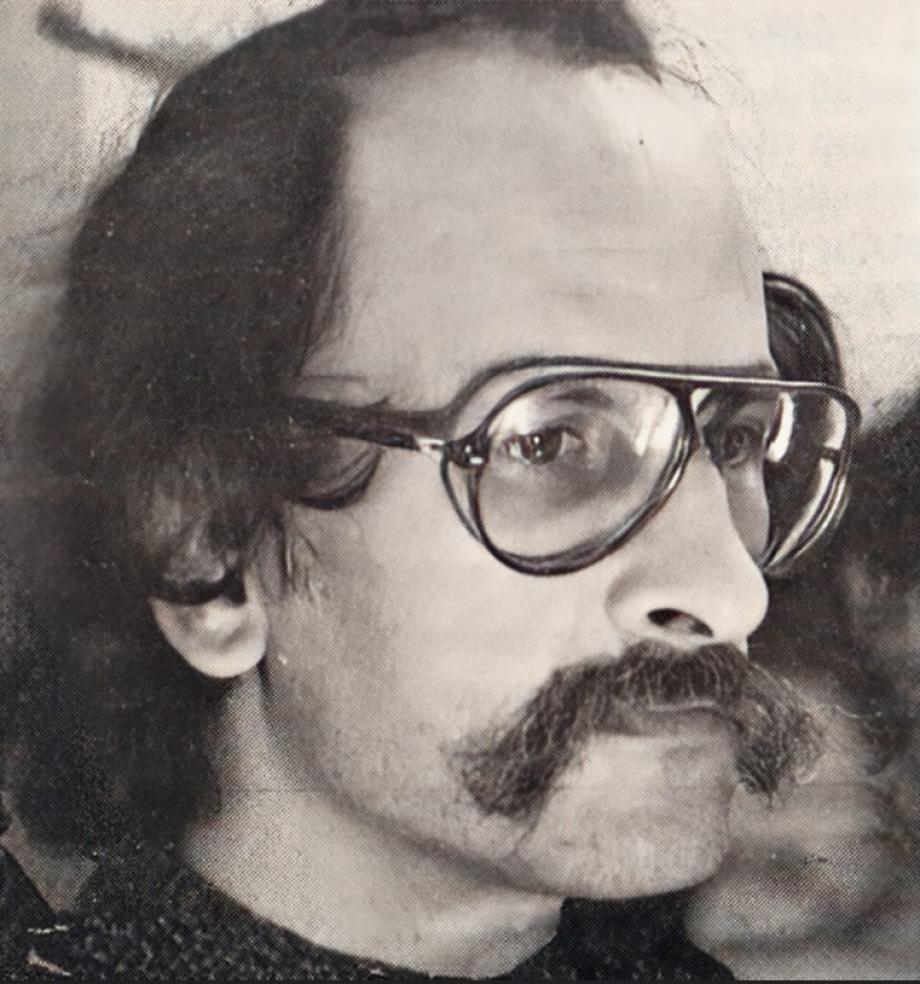
Jean-Claude Veilhan (* 9. Februar 1940 in Nizza[1]) ist ein französischer Komponist, Blockflötist und Klarinettist.
Leben und Wirken
Jean-Claude Veilhan studierte Klarinette am Regionalkonservatorium von Versailles und Kammermusik an der École Normale de Musique de Paris, als Schüler von Jean Françaix[2]. Außerdem studierte er unter Zuhilfenahme historischer Lehrbücher das Spiel der Blockflöte. Veilhan lehrte am Conservatoire National Supérieur de Musique et de Danse in Lyon und am städtischen Konservatorium in Saint-Ouen.[3]
Veilhan trat regelmäßig mit verschiedenen Ensembles in Erscheinung, so unter der Leitung von Jean-Claude Malgoire oder Jean Maillet, unter anderem als Solist mit dem Chalumeau. Auch spielt er den Cromorne français, ein Bassinstrument um 1700, aus der Familie der Rohrblattinstrumente.
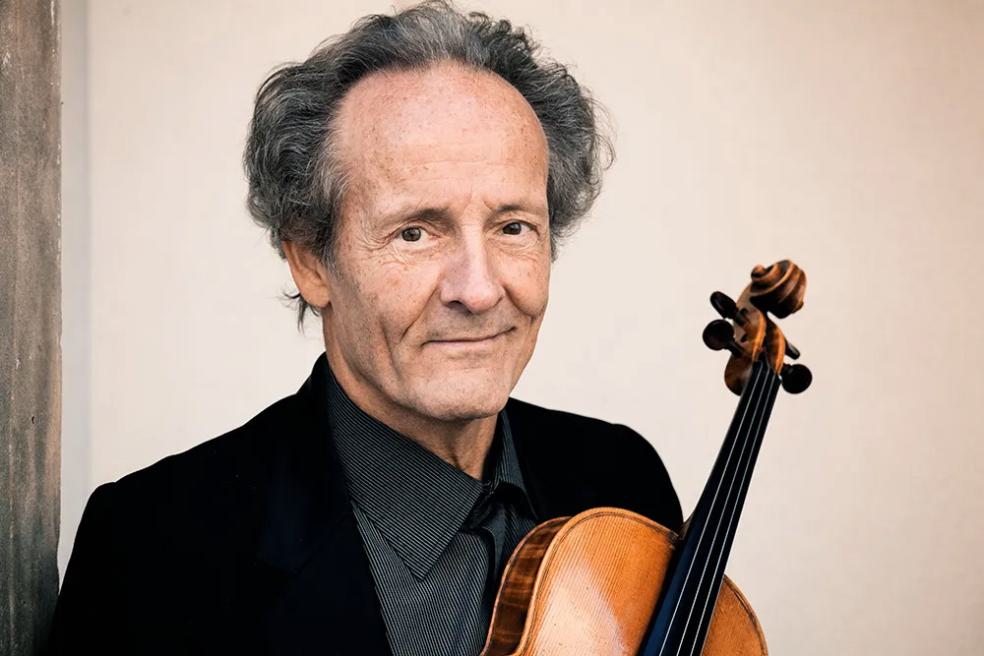
Jean-Claude Velin ging nach seinen Studien von Frankreich in die USA, war dort zuletzt Geiger an der Metropolitan Opera New York, bevor er nach Berlin kam. Seit 2004 als Bratschist im ensemble unitedberlin.
1989 in der Hauptstadt gegründet, wurde das ensemble unitedberlin zum Sinnbild der wiedergewonnenen Verbindung von Musik und Musikern im lange geteilten Berlin.
ensemble unitedberlin
Einfallsreich, mutig voranstrebend und immer am Puls der Zeit: Das ensemble unitedberlin ist eine unverzichtbare Größe der internationalen Szene für Neue Musik. Seit 1989 bringt es zeitgenössische Werke zu Gehör, überschreitet faktisch und im übertragenen Sinne Grenzen, stellt sich schwierigen gesellschaftlichen Themen, mahnt politische Missstände an und erinnert an einschneidende geschichtliche Ereignisse.
Als selbsternannte „Galeristen der Avantgarde“ sind die Ensemblemitglieder stets auf der Suche nach abwechslungsreichen Klängen, die berühren, Anstoß erregen oder zum Nachdenken animieren. Um möglichst viele Menschen für Neue Musik zu begeistern und die Inspiration weite Kreise ziehen zu lassen, gehen sie ungewohnte Wege und binden immer wieder verschiedene andere Kunstformen in ihre Konzerte ein: Tanz, Literatur, O-Töne, Zeitzeugenberichte, szenische Darstellung, Elektronik, audiovisuelle Medien und selbst Kulinarisches. Neben reinen Musikerlebnissen erwarten das Publikum somit oft multimediale Feststunden für die Sinne. Auch mit Musikformen jenseits der zeitgenössischen Klassik beschäftigt sich unitedberlin; beispielhaft dafür sei ein Ausflug in die Rock-Welt Frank Zappas genannt.
Zumeist stehen die Konzertprogramme des Ensembles für sich, es werden aber auch Konzertreihen wie der saisonübergreifende Schwerpunkt „Der Traum vom Widerstand“ konzipiert, mit dem in den vergangenen Jahren die vielgestaltige Auflehnung gegen Unrechtsregime in der Geschichte thematisiert wurde.
unitedberlin verfügt über einen bemerkenswerten Stamm an Musiker:innen und kann so einen Großteil der Aufführungen seines breiten Repertoires mit eigenen Kräften bestreiten. Mit der Vergabe von Auftragskompositionen an bekannte Komponist:innen oder junge Talente, gerne auch mit Berlin-Bezug, trägt das Ensemble zur Förderung und zur Formung der zeitgenössischen Musik bei. Für seine Aufführungen arbeitet es mit hochkarätigen Dirigent:innen zusammen, die wie die Ensemblemitglieder für die Vermittlung Neuer Musik brennen und sich den Werken in möglichst komplexer Weise nähern, sodass für die beteiligten Künstler:innen und das Publikum gleichermaßen eine gewinnbringende Atmosphäre geschaffen werden kann. Eine besondere Stellung nimmt dabei seit 1993 Vladimir Jurowski ein, der in seiner heutigen Position als Artistic Advisor viele Programme mitgestaltet und immer wieder auch selbst Konzerte des Ensembles dirigiert.
Eine weitere hochgeschätzte Zusammenarbeit pflegt das ensemble unitedberlin mit dem Konzerthaus Berlin, wo es vier Konzerte im Jahr spielt und sich somit zu den festen Größen jeder Spielzeit der traditionsreichen Institution zählen darf.
Sowohl inhaltlich als auch auf Tourneen setzt sich das Ensemble mit anderen Ländern und deren Kulturen auseinander. Gastspiele gaben die Musiker:innen u. a. bereits in Frankreich, Spanien, Italien, Polen, Rumänien, Russland, Korea, den USA und Südamerika.
Gegründet wurde das ensemble unitedberlin im Zuge der deutschen Wiedervereinigung als Sinnbild der wiedergewonnenen Verbindung von Musik und Musiker:innen in der lange geteilten Stadt. Seine Geschichte trägt es nicht nur im Namen weiter, sondern es widmet sich auch immer wieder thematisch der deutschen Teilung sowie dem Schaffen von Komponist:innen auf beiden Seiten des Eisernen Vorhangs.
Die Diskografie von unitedberlin hat sich über die Jahre hinweg stetig gefüllt, u. a. mit Werken von Luigi Nono über Kompositionen des Bautzeners Jan Cyž bis hin zu „X-MAS CONTEMPORARY“, einer Sammlung von Weihnachtsliedern aus dem 21. Jahrhundert mit dem Bariton Dietrich Henschel unter der Leitung von Vladimir Jurowski.
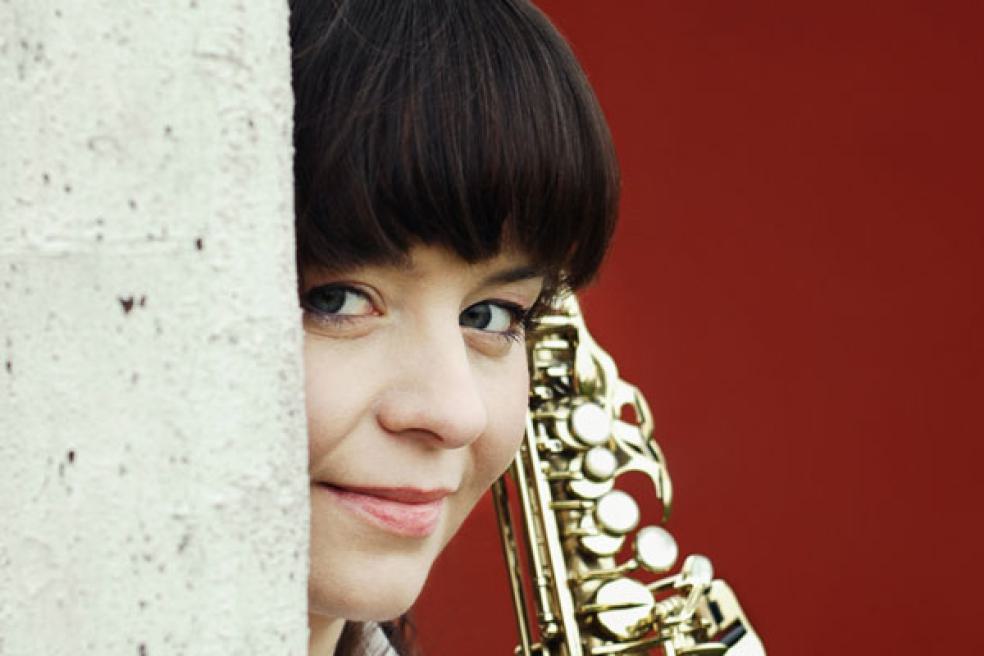
Aufgewachsen in einer Musikerfamilie faszinierten Ruth Velten schon immer vielfältige Musikstile und genreübergreifende Ansätze. In ihrer eigenen Arbeit und Repertoirewahl legt sie einen besonderen Schwerpunkt auf die Musik des 20. und 21. Jahrhunderts.
Um neue Werke für Saxophon anzuregen, arbeitet sie eng mit zeitgenössischen KomponistInnen zusammen. So sind schon viele Werke auf ihre Initiative hin entstanden. In der Spielzeit 2018/19 hat sie das Saxophonkonzert von Gordon Kampe mit der Deutschen Staatsphilharmonie Rheinland-Pfalz uraufgeführt. 2020 war sie mit dem Ensemble LUX:NM Solistin bei der Uraufführung "Masque" von Gordon Kampe für Ensemble und Orchester mit dem Rundfunk Sinfonieorchester unter der Leitung von Brad Lubman.
Das Ensemble LUX:NM ist ein Spezialensemble für Neue Musik.
Gegründet wurde es 2010 in Berlin von der Saxophonistin Ruth Velten und der Akkordeonistin Silke Lange. Zum Ensemble gehören mehrere ständige Solisten sowie eine Reihe wechselnder Gastmusikerinnen und Gastmusiker. LUX:NM tritt als undirigiertes Ensemble auf. Das Arbeitsfeld umfasst u. a. Kammermusikkonzerte, Performances, Installationen und Musiktheater.
Das Ensemble LUX:NM ist ein Spezialensemble für Neue Musik.
Gegründet wurde es 2010 in Berlin von der Saxophonistin Ruth Velten und der Akkordeonistin Silke Lange. Zum Ensemble gehören mehrere ständige Solisten sowie eine Reihe wechselnder Gastmusikerinnen und Gastmusiker. LUX:NM tritt als undirigiertes Ensemble auf. Das Arbeitsfeld umfasst u. a. Kammermusikkonzerte, Performances, Installationen und Musiktheater.
Das Ensemble LUX:NM ist ein Spezialensemble für Neue Musik.
Gegründet wurde es 2010 in Berlin von der Saxophonistin Ruth Velten und der Akkordeonistin Silke Lange. Zum Ensemble gehören mehrere ständige Solisten sowie eine Reihe wechselnder Gastmusikerinnen und Gastmusiker. LUX:NM tritt als undirigiertes Ensemble auf. Das Arbeitsfeld umfasst u. a. Kammermusikkonzerte, Performances, Installationen und Musiktheater.
Das Ensemble LUX:NM ist ein Spezialensemble für Neue Musik.
Gegründet wurde es 2010 in Berlin von der Saxophonistin Ruth Velten und der Akkordeonistin Silke Lange. Zum Ensemble gehören mehrere ständige Solisten sowie eine Reihe wechselnder Gastmusikerinnen und Gastmusiker. LUX:NM tritt als undirigiertes Ensemble auf. Das Arbeitsfeld umfasst u. a. Kammermusikkonzerte, Performances, Installationen und Musiktheater.
Das Ensemble LUX:NM ist ein Spezialensemble für Neue Musik.
Gegründet wurde es 2010 in Berlin von der Saxophonistin Ruth Velten und der Akkordeonistin Silke Lange. Zum Ensemble gehören mehrere ständige Solisten sowie eine Reihe wechselnder Gastmusikerinnen und Gastmusiker. LUX:NM tritt als undirigiertes Ensemble auf. Das Arbeitsfeld umfasst u. a. Kammermusikkonzerte, Performances, Installationen und Musiktheater.

Das Ensemble entstand am 30. November 2022 anläßlich des VR-Raum-Testkonzertes


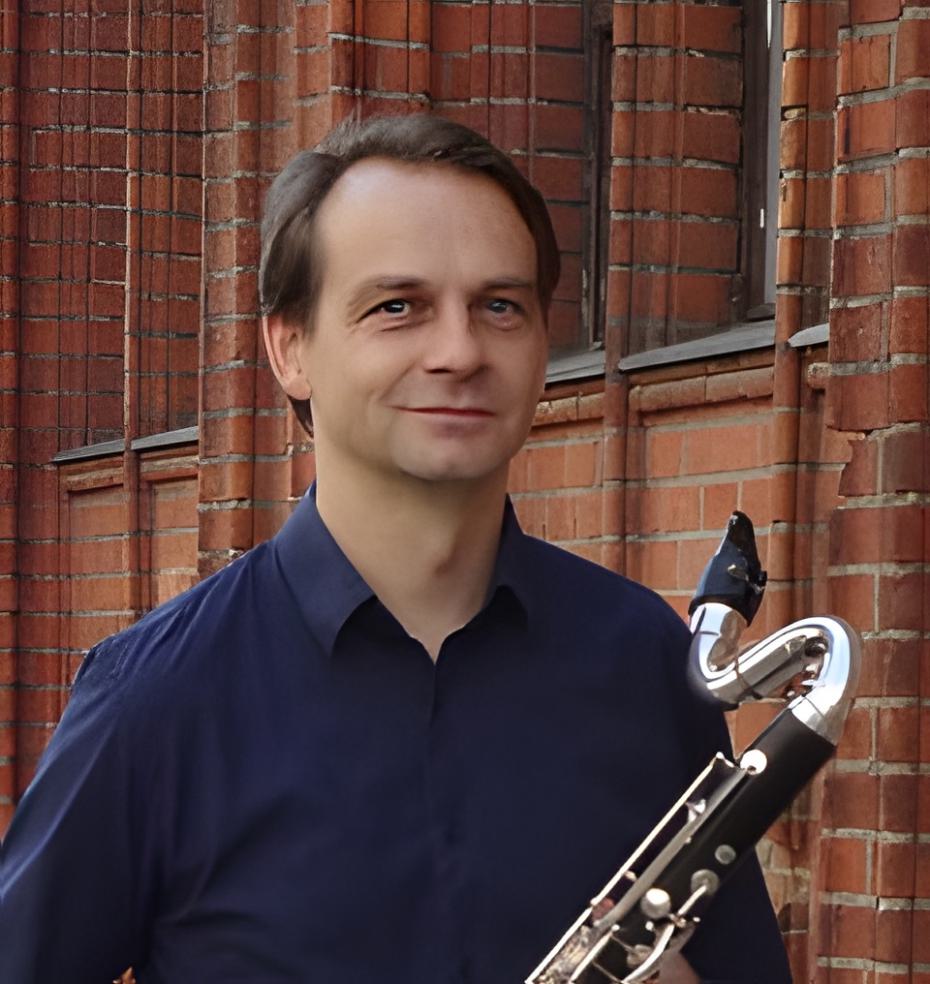
“exemplary, at times fierce virtuosity” - Grammophone Magazine
Ingólfur Vilhjálmsson studied clarinet in Amsterdam with Herman Braune and Harmen de Boer as well as bass clarinet with Harry Sparnaay and Eric van Deuren. He plays all the clarinets and has a great preference for the bass clarinet which he performs regularly, also as a solo instrument. He received a scholarship as a member of the Ensemble Modern Academy in 2006-2007.
He was a member of Ensemble Adapter in Berlin. Ingólfur has worked with many composers of his generation and given concerts in Germany, The Netherlands, Finland and Iceland, including festivals like MärzMusik (Berlin), Ultraschall (Berlin), Dark Music Days (Reykjavik), Frum- (Reykjavík) and Darmstädter Ferienkurse für Neue Musik (Germany). Ingólfur has worked with known composers such as Hosokawa and with Lachenmann on his avant garde landmark piece Dal niente. His playing has been recorded by the WDR, The Icelandic Radio, SWR and the Hessische Rundfunk.
Ingólfur recorded the CD "Dualism" with percussionist Tobias Guttmann on the ITM label in 2008.
As a soloist Ingólfur toured the UK in 2015 and recorded his second CD in 2017 with solo bass clarinet and contrabass clarinet music. The CD includes music by Franco Donatoni, Alistair Zaldua, Jesper Pedersen, Jakob Diehl and Thrainn Hjalmarsson. Vilhjálmsson's repertoire spans from the classics of the modern repertoire like Dialogue de l'ombre double by Boulez, Clair by Donatoni to the new solo works he regularly commissions and performs. Ingólfur has recorded all the solo clarinet works of Franco Donatoni.
In the classical field Ingólfur works with renowned violinist Judith Ingolfsson and pianist Vladimir Stoupel and performes often with them in Germany and France.
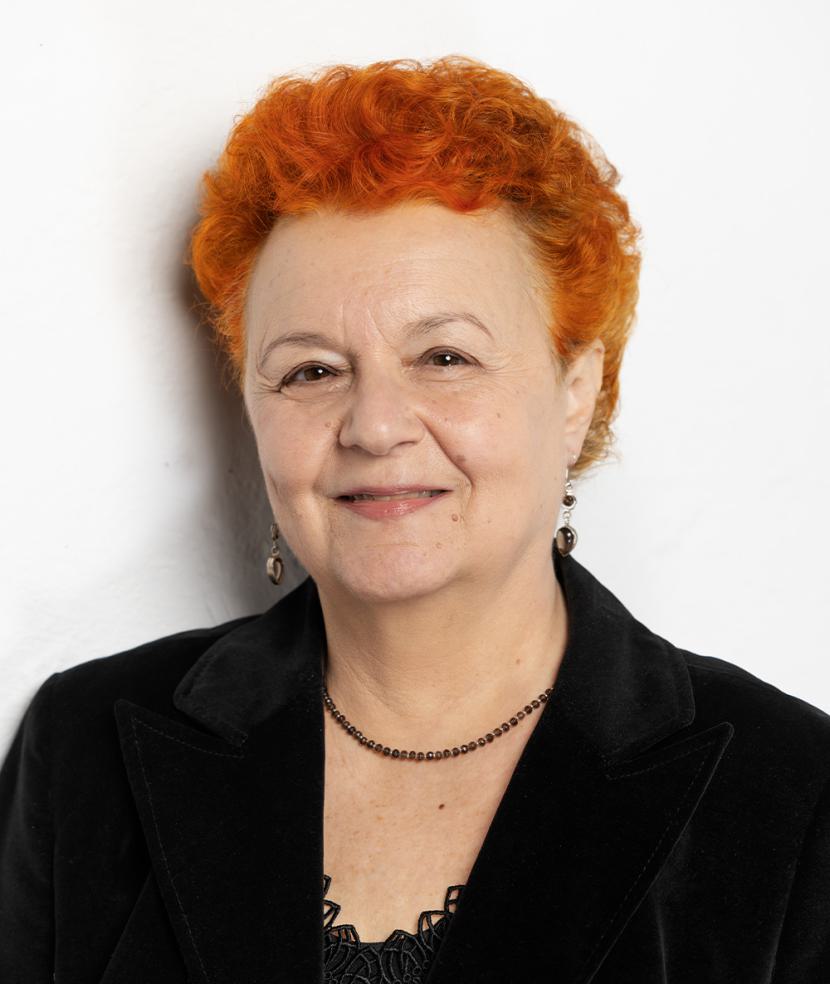
ars-nova-ensemble berlin + gegründet 1987 durch peter schwarz + die zwölf mitglieder absolvierten ihre gesangsausbildung an berliner musikhochschulen + neben den konzertver-pflichtungen des kammerchores als solisten und innerhalb der berliner rundfunkchöre tätig + europaweite gastspiele + regelmäßige teilnahme an den berliner festwochen + cd-produktion mit werken von berthold goldschmidt + cd mit werken von stockhausen, reimann und messiaen in vorbereitung.
sopran:almut krumbach, ines villanueva, sabine wüsthoff, gaya durando
alt:bettina spreitz-rundfeldt, juliane rothmaler, maria philipps, sibylle juling
tenor:joachim vogt, achim goeres, kai roterberg, jan remmers
bass:jörg gottschick, friedemann gottschick, frank schwemmer, martin backhaus
ars-nova-ensemble berlin + gegründet 1987 durch peter schwarz + die zwölf mitglieder absolvierten ihre gesangsausbildung an berliner musikhochschulen + neben den konzertver-pflichtungen des kammerchores als solisten und innerhalb der berliner rundfunkchöre tätig + europaweite gastspiele + regelmäßige teilnahme an den berliner festwochen + cd-produktion mit werken von berthold goldschmidt + cd mit werken von stockhausen, reimann und messiaen in vorbereitung.
sopran:almut krumbach, ines villanueva, sabine wüsthoff, gaya durando
alt:bettina spreitz-rundfeldt, juliane rothmaler, maria philipps, sibylle juling
tenor:joachim vogt, achim goeres, kai roterberg, jan remmers
bass:jörg gottschick, friedemann gottschick, frank schwemmer, martin backhaus

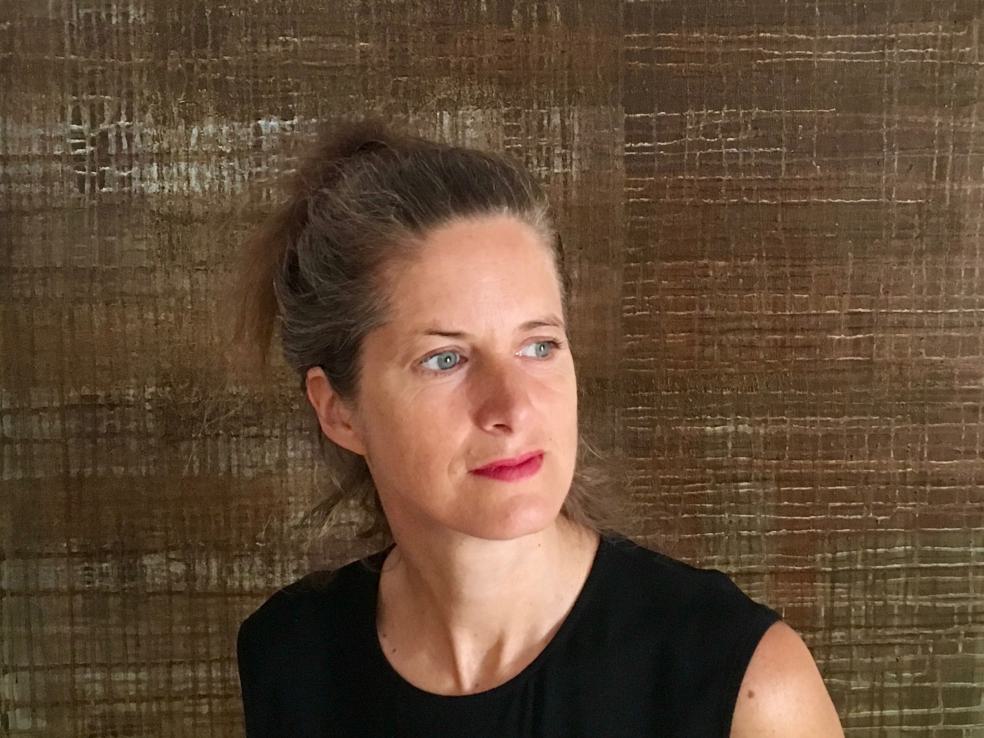
Flöte/Komposition/environmental sound art
Die Flötistin beschäftigt sich intensiv mit modernen Spieltechniken, Klang und Improvisation und hat ein eigenes Vokabular auf ihrem Instrument entwickelt, sowohl akustisch wie auch mit Erweiterung elektronischen Equipments und bestimmter Mikrophonierung. In ihren Kompositionen vermischt sie Flötenklänge aus dem „Innen“ ihrer Flöten, die sich oft auf der Schwelle des Unhörbaren befinden, sozusagen, den „Mikrokosmos“ ihrer Klangwelt, mit Field Recordings - Aufnahmen aus dem „Außen“, dem „Makrokosmos“. In ihren ortsbezogene Arbeiten - Klanginstallationen und Live- Performances in der Natur beschäftigt sie sich mit Klang, Ort, Zeit, Moment und Erinnerung.
2021 wird sie Stipendiatin in der Villa Aurora in Los Angeles sein. Vom Land Brandenburg erhielt sie mehrfach Arbeitsstipendien, war u.a. mehrfach Composer-in-Residence am EMS, Stockholm, am STEIM, Amsterdam. Ich Projekt „Recorded Landscapes“ wurde im letzten Jahr von der Stadt Potsdam und dem Musikfonds gefördert.
Im Jahre 2017 wurde unter neuem Vorsitz das sogenannte „BVNM ad hoc Ensemble“ gegründet. Improvisationserfahrene Kolleginnen und Kollegen des BVNM e.V. fanden sich für einen ersten Auftritt bei den intersonanzen 2017 für ein Konzert mit frei improvisierter Musik zusammen und beschlossen daraufhin, als Ensemble weiterzuarbeiten. Dies waren zu Beginn - in alphabetischer Reihenfolge - Thomas Gerwin (Banjo, Elektronik, Objekte), Henry Mex (Kontrabass, Stimme, Elektronik), Alex Nowitz (Stimme, Aktionen), Dietrich Petzold (Violine, Viola und singende Säge), Susanne Stelzenbach (Klavier auf den Tasten und innen), Sabine Vogel (Flöten, klingende Objekte, Video). In den Jahren darauf kamen dann Katia Guedes (Sopran, Stimme) sowie Robin Hayward (mikrotonale Tuba) dazu. Diese Besetzung spielte bislang eine Reihe hoch interessanter Konzerte in verschiedenen Besetzungen u.a. auch als Telekonzert mit NAISA Sound Travel Vancouver.
Im Jahre 2017 wurde unter neuem Vorsitz das sogenannte „BVNM ad hoc Ensemble“ gegründet. Improvisationserfahrene Kolleginnen und Kollegen des BVNM e.V. fanden sich für einen ersten Auftritt bei den intersonanzen 2017 für ein Konzert mit frei improvisierter Musik zusammen und beschlossen daraufhin, als Ensemble weiterzuarbeiten. Dies waren zu Beginn - in alphabetischer Reihenfolge - Thomas Gerwin (Banjo, Elektronik, Objekte), Henry Mex (Kontrabass, Stimme, Elektronik), Alex Nowitz (Stimme, Aktionen), Dietrich Petzold (Violine, Viola und singende Säge), Susanne Stelzenbach (Klavier auf den Tasten und innen), Sabine Vogel (Flöten, klingende Objekte, Video). In den Jahren darauf kamen dann Katia Guedes (Sopran, Stimme) sowie Robin Hayward (mikrotonale Tuba) dazu. Diese Besetzung spielte bislang eine Reihe hoch interessanter Konzerte in verschiedenen Besetzungen u.a. auch als Telekonzert mit NAISA Sound Travel Vancouver.
Kammerensemble ad hoc
Die acht MusikerInnen des Ensembles spielen in sensibler Korrespondenz und Kontrapunktik ad hoc, frei und intensiv dem musikalischen Augenblick nachspürend. Dem Klang und einander Raum gebend, entsteht im musikalischen Spiel manchmal das Unerhörte - lange Spannungsbögen, kurze, explosive oder innige Momente, Nähern und Entfernung, Klangkonglomerate, Flächen, Linien oder Punkte, geräuschhafte, melodische und materiale Strukturen, Fremdheit und Verschmelzung. Getragen von diesem musikalischen Impetus interpretiert das Ensemble ebenfalls Notationen, die kompositorisch zeitliche Strukturen und Klangvorstellungen vorgeben, jedoch viel Raum für deren Ausgestaltung im Moment lassen.
Eine Besonderheit des Ensembles ist die klanglich-musikalische Erkundung von außergewöhnlichen Räumen.
Mit Ivo Berg (rec), Thorsten Bloedhorn (e-git), Thomas Gerwin (perc, electr, prepared banjo), Axel Haller (e-b, object), Klaus Janek (double-bass, electr), Dietrich Petzold (vl), Claudia Risch (fl, sax), Susanne Stelzenbach (p), Leitung: Thomas Gerwin
Die AUDIO BALLERINAS sind Tänzerinnen, die Klänge erzeugen und gleichzeitig darstellen. Ton und Bewegung verschmelzen zu einer Einheit aus orchestrierten Bewegungen und choreografierten Klängen. In einer raumgreifenden, multiakustischen Performance erkunden sie Topografie, Räume, Geräusche und Lichtverhältnisse.
In dem Stück „GehZEITEN“ verbindet Sabine Vogel Klang, Ort, Zeit, Moment und Erinnerung. Dabei verwendet sie Klänge und Aufnahmen, die sie für ihr Projekt ‚Sonic Pilgrimage’ während ihrer Residenz im Mai 2019 in Krems (Österreich) aufgenommen hat.
Ein akustischer Pilgerweg, der den Schritten früherer Pilger folgt, löscht die vorher gegangenen Schritte nicht aus. Stattdessen geht es darum, die Schritte der Vorgänger zu empfinden, sie erneut abzuspielen und zugleich die eigenen Schritte, Klänge und Erfahrungen im sozusagen selben „Kanal" aufzunehmen und erneut wiederzugeben.
Für Biliana und einen unvergesslichen Sommer in Bulgarien
„Amod Episodes“ besteht aus mehreren „Erinnerungsepisoden“ einer gemeinsamen Zeit mit Biliana Voutchkova an ihrem Heimatort am Schwarzen Meer in Bulgarien, als wir an den Aufnahmen für „Doma“ (zu sehen in der Klangkunstausstellung) arbeiteten.
Die Episoden bestehen aus Video- und Audiopartituren, aus Spielanweisungen und graphischen Notationen. Die Reihenfolge dieser Episoden kann die Interpretin selbst bestimmen. Manche Episoden muss sie sich nach einer Sprachanweisung selbst aufschreiben, um es dann spielen zu können. Es ist auch möglich, eine Episode mehrmals in dem Stück vorkommen zu lassen, für manche Episoden ist das sogar erforderlich.
Die Episoden sind meine Erinnerungen an diese Zeit, die nun Biliana’s Erinnerungen triggern. Durch ihre Interpretation dieser Partitur vermischen sich ihre und meine Erinnerungen und bilden eine neue Erinnerungs(klang)landschaft.
Klangexperimente mit der Bassflöte, einem Tamburin und einem Lavaliermikrofonen, die ich nach einem Spaziergang im Dezember 2020 um die Erdlöcher in Paretz gemacht habe, sind die Grundlage für diese Komposition. Ich habe ich mit verschiedenem Material experimentiert, das ich auf diesem Spaziergang gesammelt hatte und dies auf die Membran eines Tamburins gelegt habe. Durch Auflegen des unteren Flötenrohres und dann Spielen - vorzugsweise Töne bei denen fast alle Klappen geschlossen sind - gerät die Membran des Tamburins ins Vibrieren und somit bewegt sich auch das Material, das auf der Membran liegt und beeinflusst den Klang.
Fotografien von Bäumen, die ich auf diesem Spaziergang gemacht habe als grafische Partitur.
Als freiberufliche MusikerIn/KomponistIn verbringt man häufig mehr Zeit mit Administrationsarbeit als einem lieb ist und es gibt oft Tage an denen es für kreatives Schaffen weder Energie, Zeit noch Ruhe gibt.
Deswegen ist mein „Vorsatz für das 2019“, jeden Tag eine 1 bis 5- minütige Audioaufnahme zu machen und ein Foto oder Video. Dabei müssen Bild und Ton nicht unbedingt etwas miteinander zu tun haben. Oft muss ich mich spät abends noch dazu „zwingen“, um dann festzustellen, dass man auch sehr müde und mit einem vollen Kopf auf neue Ideen kommen kann.
Diese audiovisuelle Installation besteht aus den Aufnahmen der ersten Jahreshälfte von 2019.
Während meiner Arbeit mit dem Projekt “Landscape Quartet”, habe ich mich oft stundenlang dem Wind ausgesetzt. Ich experimentierte mit Windharfen und Installationen aus Bambusflöten - der Wind hat mich gestreichelt, liebkost, gekitzelt, an mir gerüttelt. Er hat mich durch sämtliche Gemütszustände geblasen: Ich habe gelacht, gespielt, geweint, geschrien. Das Zuspiel für dieses Stück besteht aus Aufnahmen mit diesen ‚Windbegegnungen’. Ich habe zu den Installationen gespielt und oft schien es so, als ob nicht nur ich auf den Wind reagiere, sondern wir miteinander kommunizieren. Als ob er seine eigene ‚Agency’ (engl. für Handlungsfähigkeit/Vermittlung) hat.
Die Glissandoflöte legt sich in den Wind, sie lässt sich umstreicheln und kosen, stellt sich gegen ihn, lässt sich aufrütteln und beruhigen.
Ensemble-Stück mit Spielanweisungen und graphischer Partitur
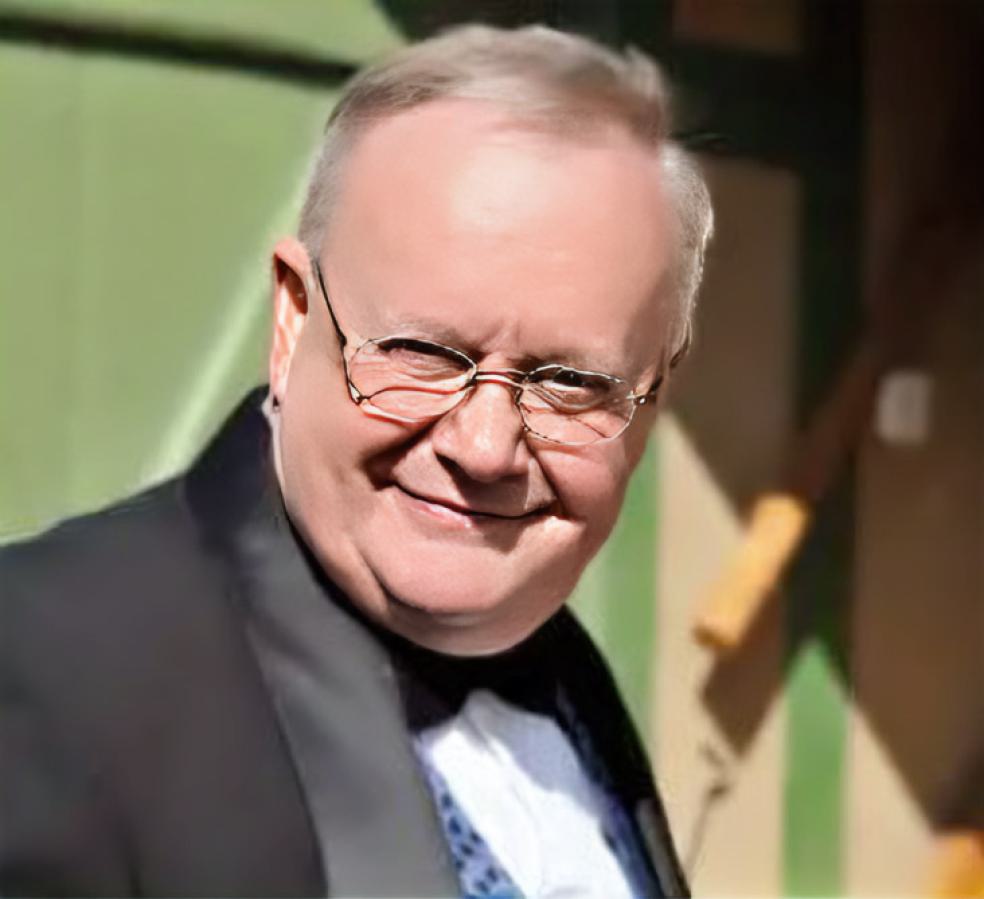
Joachim Vogt
Kommentar verfassen / Künstler / Von NEOS Music
Tenor
Biographie:
Joachim Vogt stammt aus Dittersbach in Böhmen. Nach dem Studium der Schulmusik und Germanistik schloss er ein Gesangsstudium an der Hochschule für Musik »Hanns Eisler« in Berlin an.
Bereits während des Studiums wurde er vom Rundfunkchor Berlin engagiert. Gleichzeitig begann eine umfangreiche musikalische Tätigkeit als Ensemblevokalist (Capella lipsiensis, Berliner Solisten), als Gast an der Deutschen Staatsoper Unter den Linden, an der Komischen Oper Berlin und als führender Interpret des zeitgenössischen Vokalwerkes.
Er gestaltete etwa 150 Rundfunkproduktionen und wirkte bei zahlreichen Schallplatten- bzw. CD-Produktionen mit. Einige Jahre arbeitete er als Leiter des Fachbereiches Gesang an der Händel-Schule Berlin.
Joachim Vogt singt neben projektgebundener Konzerttätigkeit im Bayreuther Festspielchor und lehrt an der Hochschule für Musik »Hanns Eisler« in Berlin.
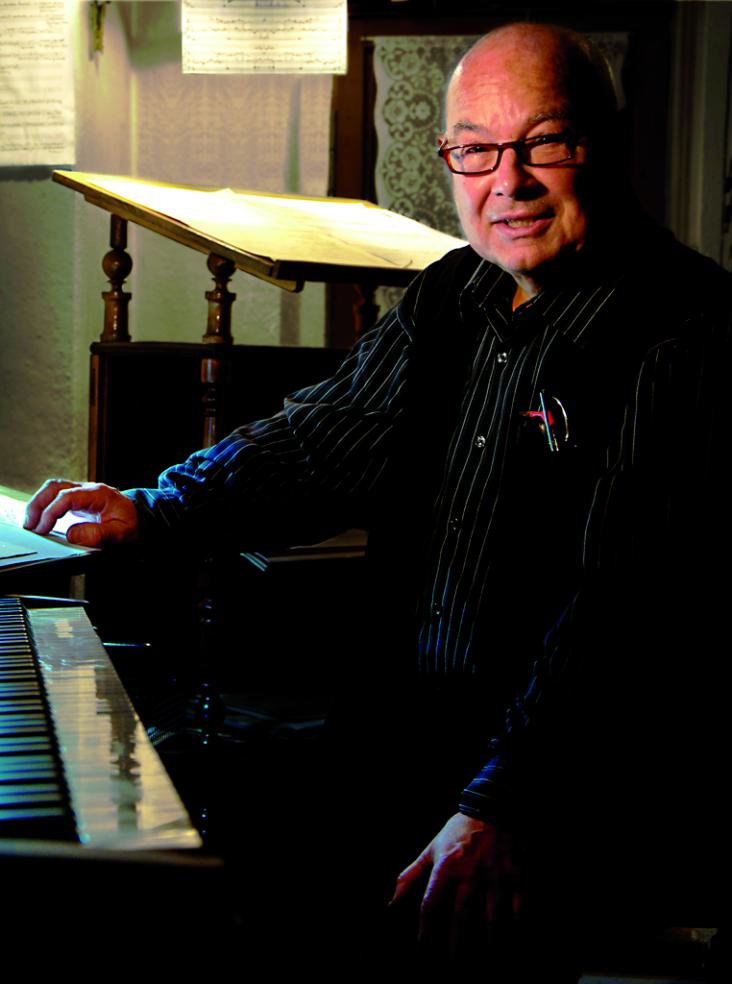
Lothar Voigtländer (1943 ) musikalische Ausbildung im Dresdner Kreuzchor; Studium HfM in Leipzig, Dirigieren (Rolf Reuter) - Komposition (Fritz Geißler). Dirigent am Theater, Meisterschüler an der ADK BLN- lebt seit 1973 freischaffend als Komponist in Berlin. Gründete (gem. mit G.Katzer)die „Gesellschaft für elektroakustische Musik“ und erhielt 1992 eine Gastprofessur an der Universität Paris VIII. 1992 Gründung des Festivals „Lange Nacht der elektronischen Klänge“-seit 2001 Lehrauftrag, 2003 Professur an der Musikhochschule Dresden (MeisterklasseKomposition). Ab 1990 Vorsitzender beider Berliner Komponistenverbände - Vereinigung im DKV. Ab 2006-2016 Mitglied des Aufsichtsrates der GEMA- 2012/13 auch Präsident des Deutschen Komponistenverbandes.
Das Stück endet mit dem Satz „zurückbleiben !“ und ist ein Stück persönlichen kompositorischen Kommentars in 1986…..
Das Stück ist als Zeitdokument zu sehen und hatte seinerzeit zahlreiche Rundfunksendungen im Sinne einer neu entstehenden Gattung : „radiophone Komposition“ , welche mit „Maikäfer flieg“ ins Gesichtsfeld der Redakteure von Radio DDR II gedrungen war - siehe auch Georg Katzer : „aide memoire“. (Auftrag des Rundfunks der DDR 1986, Mention beim Festival in Bourges 1988)
Erich Arendt hat seinen letzten Gedichtband 1981, nur drei Jahre vor seinem Tod, entgrenzen genannt und auch die Wortschöpfung „veratmen“ ist seiner Lyrik entnommen. Vielleicht ist es auch kein Zufall, dass dieser Titel von mir im Jahr 1990 so ausgesucht und collagiert wurde. Darüber hinaus weist es auch auf rein kompositorische Parameter hin: Der Gebrauch des Ein- und Ausatmens, der gezielten Einbeziehung des „Überblasens" und des prononciert percussiven Gebrauchs der Atemluft erweitern das Ton- und Ausdrucksspektrum der Flöte.
Die beim späten Arendt zu bemerkende Reduzierung der "Wortmittel", einer spät-expressionistischen Sprache mit all ihren Wort-Neuschöpfungen, hat mich im Laufe der Jahre zu vielen Kompositionen inspiriert.
Elektroakustische Realisation im Experimentalstudio des Slovakischen Rundfunks 1975 – Auftrag Radio Bratislava – 2. Preis Festival Bourges 1975
Die 3 Teile der Komposition sind inspiriert von Texten des franz. Dichters E.Guillevic
1. „es sind da Beziehungen zwischen Wind und Zeit – und wir sind ausgeschlossen“
2. „manchmal nimmt eine andere Zeit in uns Gestalt an oder Gewicht“
3. „nichts besitzt man - niemals – außer ein wenig Zeit“
Diese Komposition ist die erste, die der Komponist sekundengenau auf Millimeterpapier realisierte – sie diente als Vorlage zur Erstellung und Abmischung gemeinsam mit Hilfe der Tonmeister Peter Janik und Jan Backstuber. Die Materialien rekrutieren sich aus synthetischem Material des (damals neuen) Synthesizers ARP, die externen Materialien der musique concrète wurden im spannungsgesteuerten ARP-
Modul gefiltert, mit Hilfe analoger Bandmaschinen „zerhackt, durch manuelle Bandzuschnitte und mit variierten Bandschleifen in div. Bandmaschinen durch Filter-Prozesse tonhöhen-verändert und in reversen modi mit synthetischem und concretem Klangmaterial verschnitten und in div. Klang- und Hallmodi aufbereitet (gefiltert).
Die kompositorisch/dramaturgische-Organisation des Zusammenspiels zwischen dem Text dieses wohl berühmtesten Gedichtes von Rimbaud und die eigenständige instrumentale Exegese durch den Instrumentalisten bewirken, dass in der improvisatorischen Gestaltung eine weit und individuell gefächerte Ebene zur poetischen Aussage dazu gewonnen werden kann - ohne der Gefahr einer „ musikalischen Vertonung „ zu erliegen. L.V.
– für Matthias Bauer –
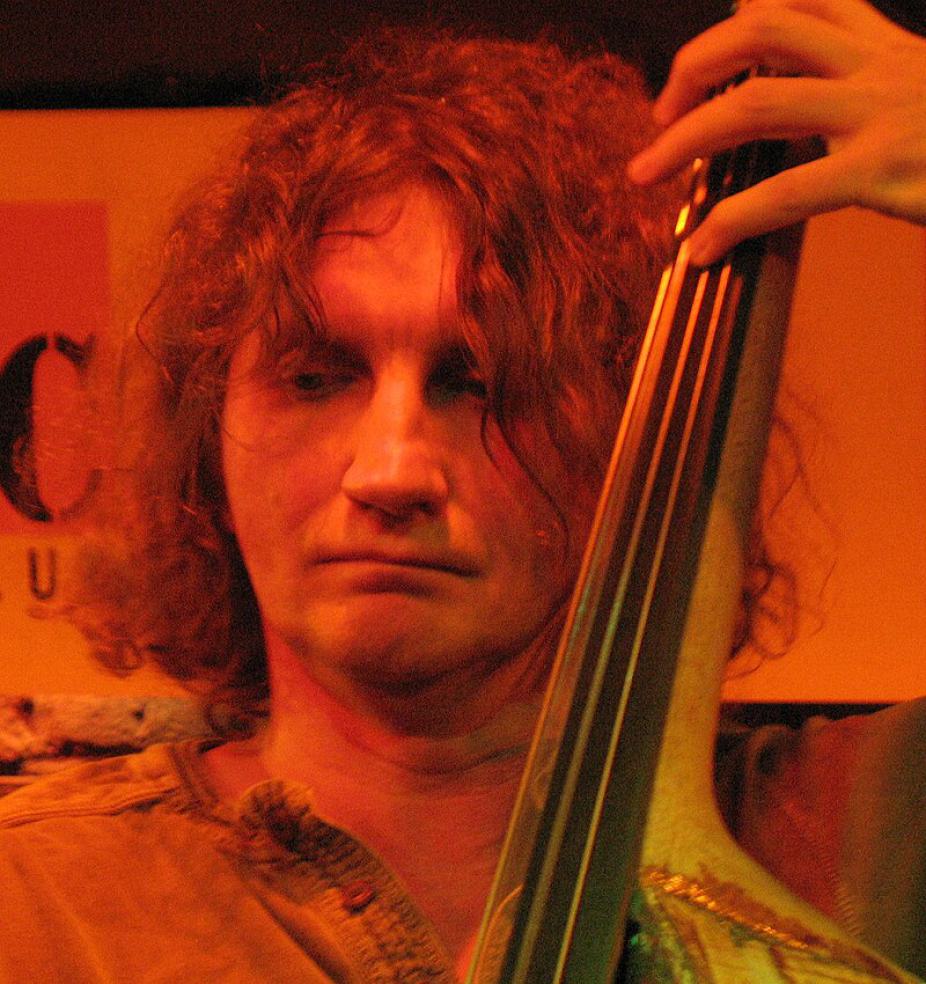
Volkov wurde als Partner von Vjacheslav Guyvoronsky im Leningrad Duo (bzw. St. Petersburg Duo) bekannt, mit dem er mehrere Alben aufnahm. Er spielte in Wieland Kuykens Collegium Europe und dem The Moscow Composers Orchestra. In den 1990er Jahren wurde er Mitglied des multikulturellen Projekts Vershki da Koreshki, dem der Pianist und Akkordeonist Alexei Levin aus Russland und die Sänger Mola Sylla aus Senegal und Kaigal-ool Khovalyg aus Tuwa angehören.
1998 wirkte er neben Enver Izmailov, Harry Tavitian, Anatoly Vapirov und Stoyan Yankoulov am Projekt Black Sea mit, das für das Leipziger Jazzfestival organisiert worden war. Danach arbeitete er mit Arkady Shilkloper und Sergey Starostin vom Moscow Art Trio sowie mit Sainkho Namtchylak und Vladimir Tarasov.
1999 unternahm er mit der Gruppe Vershki da Koreshki und der norwegischen Sängerin Mari Boine eine Europatournee. Zur Verleihung des Titels Europäische Kulturhauptstadt an die Stadt Graz 2003 beteiligte er sich an einem Ost-West-Projekt. Im gleichen Jahr gehörte er zu den Gründern des The New East Quartet (mit Tomasz Stańko), das sich im Londoner Barbican Center vorstellte.
Die jüngsten Bands Volkovs sind das Volkov Trio (mit Sergey Starostin) und das Baltic Quartet, dem Bobo Stenson, Petras Vyšniauskas und Klaus Kugel angehören.
Alex Nowitz, Stimme (als Gast)

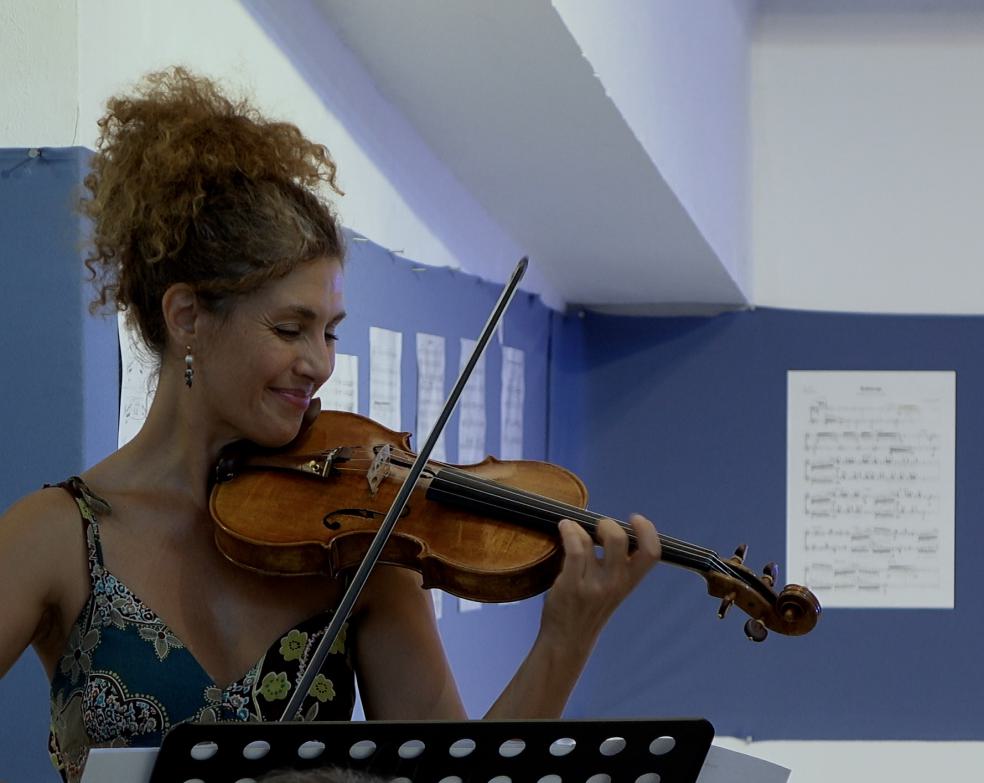
In eine musikalische Familie geboren, studierte sie zunächst in Bulgarien und dann in den USA Klassische Violine. In New York kam sie in Kontakt mit Improvisierter Musik. In Berlin entwickelte sie die musikalische Balance ihrer vielschichtigen Einflüsse. Sie ist Mitglied in zahlreichen Ensembles und wird als Solistin wahrgenommen und geschätzt. Ihre musikalische Arbeit reflektiert ein ungewöhnlich weites Spektrum an Einflüssen und Prägungen.
Biliana Voutchkova will perform a new solo version of the piece originally developed and premiered in Chicago with Olivia Block. A structured improvisational work for solo violin and cassette tapes which feature violin and field recordings prepared in advance by Biliana. Her performance will be guided by the speed and clarity of the tapes as it is altered by the device and a live re-recording will be made, then multiplied further for the next performances. This variable work is constantly developing and building a kind of an archive of itself which is evident each time it is performed. The piece emphasise themes related to the multiple ways time is experienced through sound and recordings, and how meaning is created and altered through the recording process of sound.
A clutter of sound and imagery taking place in a micro-environment of a solo combining the sound of the violin and the voice. Creating depths and abstractions, resonance and echo, expending the borders of the known.
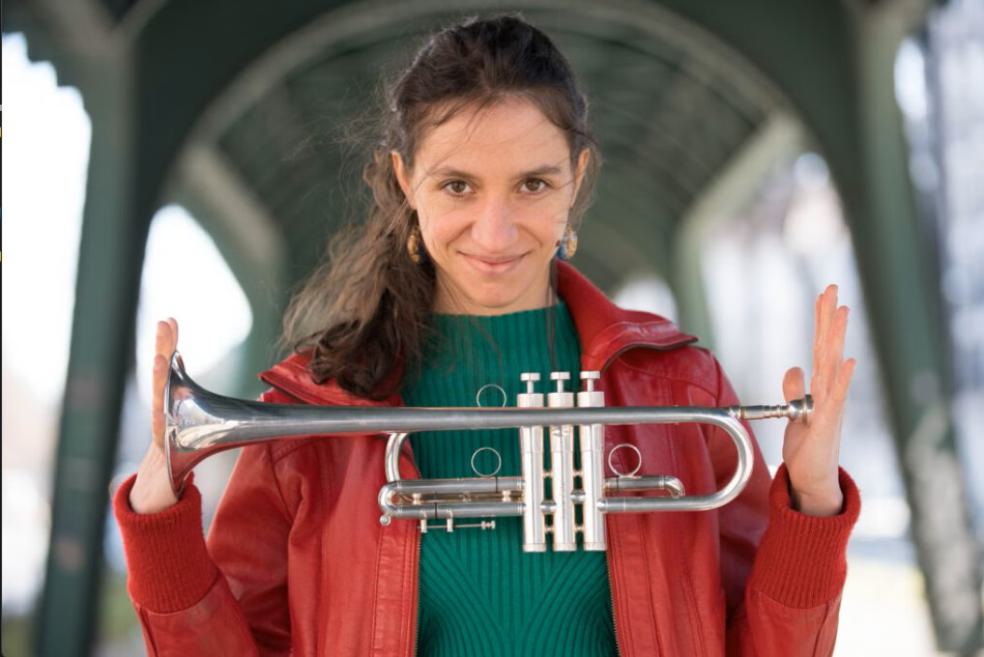
Katarina Vowinkel (1996) begann im Alter von fünf Jahren Klavier zu spielen. Mit 11 kam sie zur Trompete und engagierte sich in verschiedensten Ensembleformen und wurde schon bald auch Mitglied des Landesjugendorchesters sowie des LandesjugendJazzorchesters.
2013 setzte sie am Musikgymnasium Carl-Phillip-Emanuel Bach in Berlin ihre musikalische und schulische Ausbildung fort. Bei dem Wettbewerb “Jugend musiziert” erspielte sie in verschiedenen Wertungen, sowohl am Klavier als auch der Trompete, mehrere Preise auf Landes- und Bundesebene. Wichtige musikalische Impulse erhielt sie in Meisterkursen mit Bo Nilsson und Edward Tarr. Besonders engagierte sie sich in der Szene der neuen Musik und brachte in den folgenden Jahren viele Werke zur Uraufführung, darunter Werke von Helmut Zapf, Georg Katzer, Eunhye Joo, Dustin Zorn, Fabian Zeidler und weitere.
2021 beendete Katarina Vowinkel ihr Trompetenstudium an der renommierten Hochschule für Musik “Hanns Eisler” in der Klasse von Prof. William Forman und begann ihren interdisziplinären Master im Fach “Elementare Musikpädagogik” an der UdK Berlin.
Als Trompeterin trat Katarina Vowinkel solistisch bei den “Himmelpforter Klassiktagen” auf, spielte regelmäßig Konzerte mit Orgel, sowie in verschiedensten kammermusikalischen Besetzungen mit Gesang, Gitarre und Harfe und beteiligte sich an der Gründung des “georgkatzer ensembles” sowie des “Illume Orchestras”.
Entstand 1993 an der Musikschule Berlin-Kreuzberg, zunächst stand das Experimentieren mit neuen Spieltechniken und das Improvisieren als Grundlage der Arbeit. Es spielte in seiner Entstehungszeit junge Komponisten wie Sebastian Stier, Steffen Schellhase, Janis Antonopulis und Peter Köszeghy. Aber auch „alte Hasen“ wie Friedrich Schenker, Robert Carl, Friedrich Goldmann, Lothar Voigtländer und Georg Katzer schrieben für das Ensemble. Es hat alljährliche Auftritte zur ″Klangwerkstatt Berlin″, bei den ″Randfestspielen″ Zepernick und mehrfach bei den ″intersonanzen″. So festigte es sich als Festival-Ensemble besonders in Brandenburg und Berlin. Konzertreisen in die Schweiz und nach Korea.
Das Ensembel spielt bei den intersonanzen 2021 mit Matthias Bauer kb, Mike Flemming vla, Andrey Lakisov sax und Nadezda Tseluykina p Leitung, Organisation: Helmut Zapf
Mitglieder:
11 (Flöte, Klarinette, Saxophon, Horn, Perkussion, Klavier, Akkordeon, Viola, Violoncello, Kontrabass).
Programm:
Musik nach 1980, insbesondere Musik von in Berlin und Brandenburg lebenden Komponist*innen, Kompositionsschüler*innen und Studierenden; Uraufführungen (T. Akyol, C. de Gelmini, F. Goldmann, M. Hirsch, G. Katzer, R. Kuwan, S. Lee, A. Lewandowski, J. Mainka, K. Querfurth, R. Rubbert, F. Schenker, E. Veniadis, L. Voigtländer, Y. Xuan, H. Zapf, W. Zimmermann u.a.). Konzertreihen "Randspiele", "Intersonanzen" und "Klangwerkstatt Berlin".

Cluj-Napoca – Rumänien
Das Ensemble Couleurs aus Cluj-Napoca/Klausenburg, Rumänien wurde 2020 vom Komponisten Alexandru Ștefan Murariu mit dem Ziel gegründet, sowohl moderne als auch zeitgenössische rumänische und internationale Musik zu fördern. In den drei Jahren seiner Tätigkeit wurde das Ensemble Couleurs zur Teilnahme an mehreren hochkarätigen Festivals wie »Brave neue Musik« Sibiu, »Cluj Modern« Cluj-Napoca, »Remus Georgescu Festival« Timișoara und »Meridian International Festival« Bukarest eingeladen. Im Jahr 2023 traten sie im Rahmen eines vom Rumänischen Kulturinstitut über das Cantemir-Programm kofinanzierten Projekts mit dem Titel »Around György Ligeti –romanian contemporary music, ethos and vigurosity« im Kammermusiksaal der Berliner Philharmonie auf.
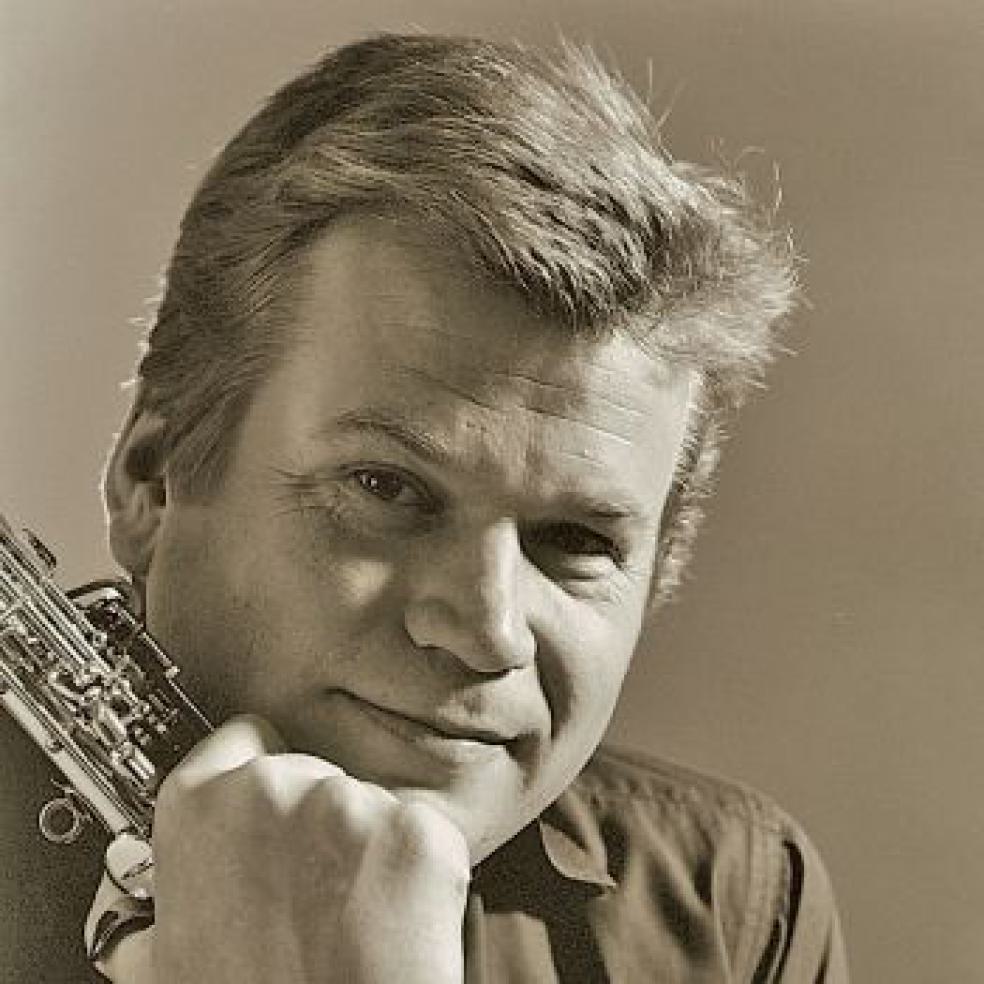
Petras Vyšniauskas ist ein litauischer Jazzmusiker und Multiinstrumentalist (hauptsächlich Sopransaxophon) des Modern Creative Jazz und Hochschullehrer als Musikpädagoge an der Litauischen Musik- und Theaterakademie in Vilnius.
Er trat in vielen europäischen Ländern auf und nahm an fast allen großen Jazzfestivals in west- und osteuropa teil + er spielte mit Steve lacy, vyacheslav ganelin, han bennink, jon christensen, tomasz stanko, vladimir chekasin bigband, kent carter, theo jörgensmann, jimmy owens, elliot sharp, paul jeffrey, dem "rova saxophone quartett", "jazz
baltica" usw. + außerdem tritt er im duo mit der ausgezeichneten litauischen volkssängerin veronika povilioniene auf + zusammenarbeit im new european saxophone quartett mit anatoly vapirov, vytas labutis und gianni gebbia + in den 80ern war er mehrfach "musiker des jahres" der udssr + petras vysniauskas gewann 1999 den "grand prix of arts" der litauischen regierung.